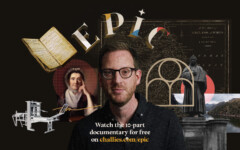Whatever else is true about this modern-day Reformed resurgence, this much is indisputable: We love our conferences. We love the experience of gathering together and hearing from our favorite authors, pastors, and theologians as they lead us to God through his Word. Many of us can attest to the innumerable blessings we have received by participating in such events.
I recently found myself asking this: When we go to conferences, who is it that we want to hear from? I decided to do a little bit of informal research by collecting some information about this year’s major events—those that have at least 1,000 attendees—and ones that are comprised primarily of keynote addresses or sermons. This allowed me to focus on a number of them, some targeted at pastors, some at women, and some at a general audience. Between them, those major Reformed conferences have 63 keynote speakers who will speak to perhaps 25,000 or 30,000 attendees and then to many more through streaming and recordings. (Note: if 1 person is speaking at 2 of these events he is counted twice.) There are many observations I made, but today I am going to highlight just 2:
- Nationality. Of the 63 speakers, 57 live in America and the remaining 6 live in either Canada or the United Kingdom.
- Race. Of the 63 speakers, 61 are white and 2 are African-American; no other races are represented.
Race & Nationality
Each of these conferences takes place in America. It should be no great surprise, then, that the great majority of the speakers live in the United States (even if they are not all American-born). Yet it is worth noting that the few international speakers are no further removed geographically or culturally than the U.K. and Canada and that together they represent only 2 of the world’s 6 continents and only 3 of the world’s 196 countries.
And then we come to race. Of the 63 keynote slots across the conferences I polled, 61 are filled by whites and 2 are filled by non-whites—in this case, both African-Americans. There is greater racial representation in breakout sessions and in conferences that follow alternative formats, but when it comes to keynote addresses, we see little racial diversity. We see no one of Asian descent, no one of Latin American descent, no one from recent African descent, and so on. To put it bluntly, the great majority of the speakers at this year’s Reformed conferences are white Americans and, in most cases, white American men.
The Opportunity Before Us
There are many ways we could interpret this data and, of course, many more observations we could draw from this brief survey. As I try to put it all together in my mind, I keep thinking of this word: Opportunity. This information gives us the opportunity to consider some facts about ourselves, determine what they might mean, and then to decide if and how we will respond to them.
But before we go any further, I want to consider the possibility that while this survey does display a real trend, 2016 may make that trend abnormally stark. We ought to acknowledge grace where grace is evident and if we look we will see it. Consider, for example, last year’s bi-annual Gospel Coalition National Conference which had two minorities among its eight speakers. It also featured a special event titled “Seeking Justice and Mercy From Ferguson to New York,” and a Spanish-language pre-conference. A brief search turned up other events that featured greater diversity in previous years than in 2016. Some leaders have long made it a point to ensure minority representation at their events. As far back as 2002, for example, John Piper designed an entire pastors’ conference on the theme of God-centered theology and the black experience in America. Then there is the fact that while breakout sessions and discussion panels may not carry the weight of keynote addresses, they do often feature greater diversity and often attempt to deliberately serve diverse demographics. Also, breakouts offer a smaller platform but are often used as a proving or testing ground for the bigger platform so that some of this year’s breakout speakers may be next year’s keynotes. We also need to acknowledge that Reformed theology is relatively new to many international and minority communities, whereas it has much deeper roots among those from European backgrounds. For that reason it may not be realistic to expect absolute parity in representation.
Still, even with all of that being true, we really do need to ask: Where is the diversity? Where is the diversity in this, a year where issues of race and diversity are on all of our minds? Based on the evidence before us, we have to conclude that there is not a whole lot of it.
Yet speaking personally, I find myself increasingly eager to hear from people who are unlike me in every way except in our shared faith and our shared convictions. I want to hear how God has worked in and through all kinds of people. I want to be taught, led, encouraged, and influenced by them. I want to learn from them how to better understand, interpret, love, honor, and teach God’s Word. I want to be shaped by people who are as different from me as two human beings can be, yet bound together by a common Savior. I want this. Truly, I long for this. It’s not that I want the current voices silenced; I simply want new voices added to them—voices that will represent the growing scope and depth of this Reformed resurgence. I have spoken to enough of you to know that I am not alone in this.
So why this distance between desire and reality? And if the gospel is truly a gospel that draws together all possible kinds and categories of people, why do we see more uniformity than diversity? I plan to turn to this subject tomorrow in the second and final part of this article. But by way of preview, I intend to take the spotlight off conferences and to turn it on us. After all, conferences don’t exist in a void. Conferences don’t create speakers or preachers but simply identify the ones who are already there. If that is the case, we need to look beyond conferences and begin to look to local churches—to you and to me. I want to offer a few thoughts on the sheer goodness, the sheer beauty, of diversity, I want to draw our attention to that creed of semper reformanda, and I want to suggest what the two might have to do with one another. But more on that tomorrow.










